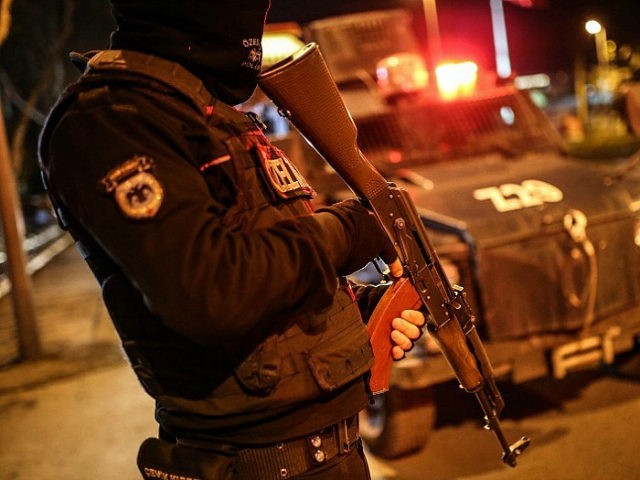Turkey’s broadcasting oversight agency has enacted a new set of regulations that prohibit news outlets from broadcasting footage of terrorist attacks, including images of police and emergency vehicles, and bans the phrase “breaking news” and other “agitating” content.
The newspaper Hurriyet has translated into English many of these new measures, which follow a renewed push by Turkish authorities to promote the nation’s tourism industry. A string of terrorist attacks by the Islamic State and Marxist Kurdish groups have significantly impacted the nation’s previously thriving tourist sector.
According to Hurriyet, Turkey’s Radio and Television Supreme Council (RTÜK) has decreed that news tickers may no longer show the words “breaking news,” and “criticism and commentary” on broadcasts alerting viewers to a terrorist attack are now banned.
The regulations prohibit broadcasting any “exaggerated statements involving agitation” and images of the attack itself unless the government specifically provides for such broadcast. Hurriyet adds that images of “fire department vehicles, police vehicles, ambulance footage, witness accounts, officials at the scene, and evidence-collecting work” are also banned.
Any indication of “where the incident took place” on television news broadcasts is also illegal. Any mention of the names of terrorist groups potentially responsible for the attacks will result in fines.
The move follows a difficult year for Turkish media in which the government of Islamist President Recep Tayyip Erdogan has increasingly flexed its muscles to silence dissent. In October 2016, for example, the Turkish government shut down IMC TV, a prominent pro-Kurdish television outlet, for “spreading terrorist propaganda.” Erdogan’s administration had previously shut down 131 media outlets over the summer, following a failed coup against his government that Erdogan has blamed on Islamic cleric Fethullah Gulen. Gulen, who resides in Pennsylvania, has denied any involvement. The outlets shut down had ties to Gulen, according to Turkish officials, though many objected to this designation.
Among the outlets shut down following the coup were the magazines Bugün and Millet, which Turkish police had previously raided, forcing them to cease operations temporarily on charges of supporting Gulen.
The new television regulations do not appear to be limited to an attempt at silencing dissent, however. On Thursday, the same day the new regulations arrived, Erdogan delivered a speech on tourism in the Presidential Palace, encouraging Turks to travel their own country and foreigners to come to Turkey.
“I want our citizens not only to come here [Turkey] but also to invite their neighbors in their countries of residence and their friends. We are launching this ‘Come with Your Neighbor’ campaign for our citizens abroad,” Erdogan reportedly said, speaking to “tourism sector representatives,” according to the newspaper. He also specifically scolded Turkish couples who choose to marry abroad: “Today, over 50,000 weddings are held abroad by our citizens annually. This number is very serious. I expect our citizens living abroad to hold their special ceremonies like weddings, engagements or circumcisions in our country.”
Tourism from foreigners has declined significantly since the Islamic State bombed Istanbul’s Atatürk Airport in June 2016; the travel firm ForwardKeys found a 69 percent decrease in bookings to flights into the city between June and January 2017. The numbers had already been decreasing before that attack: Turkey’s tourism ministry recorded a 26 percent decline in the number of non-Turkish tourists visiting Istanbul between 2015 and 2016. These numbers also preceded the New Year’s Eve attack on Reina nightclub, an Istanbul mainstay for tourists from the Middle East. An Islamic State terrorist killed 39 and wounded 70 at the club on December 31; the group ultimately claimed responsibility and condemned the celebration of the new calendar year as haram.

COMMENTS
Please let us know if you're having issues with commenting.